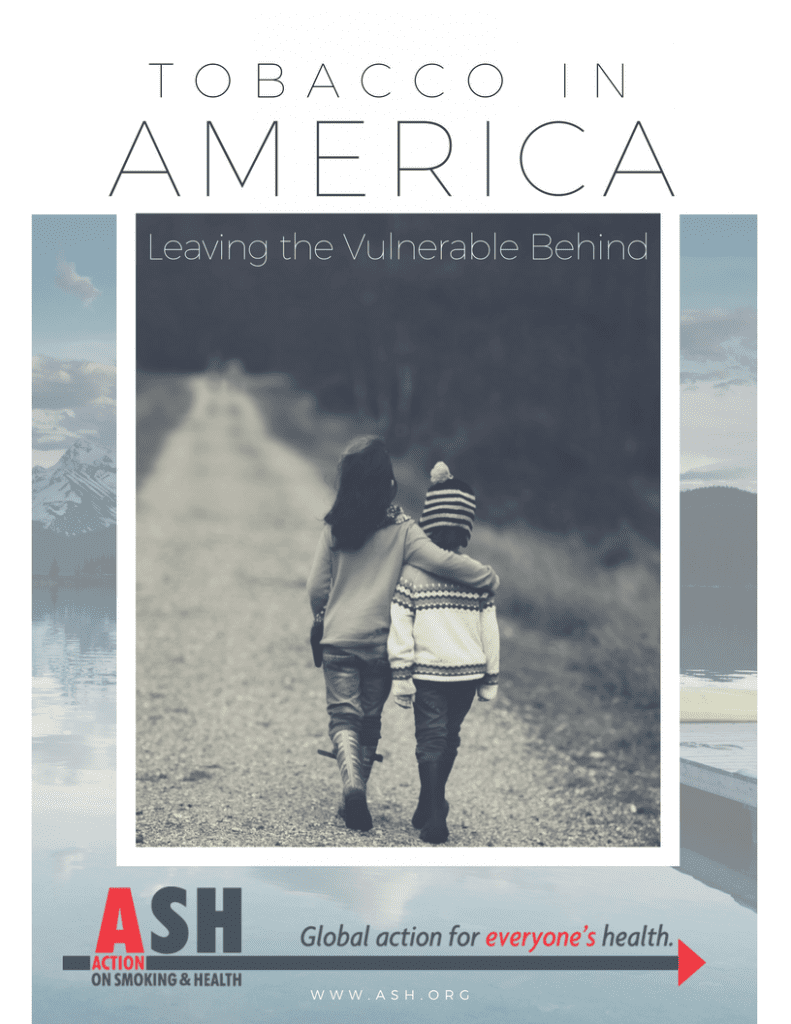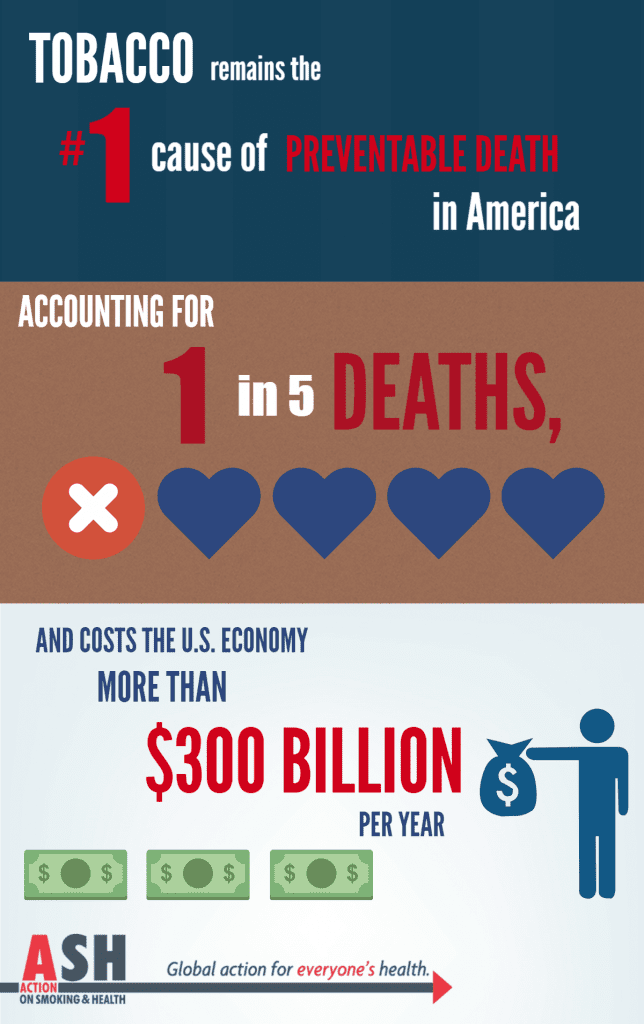Americans’ Health Ranks 43rd Globally, Despite Spending Most on Healthcare

Action on Smoking and Health (ASH) unveils report results, demonstrating that large disparities in tobacco use hamper health efforts
Media Contact: Megan Arendt
Office: (202) 659 – 4310
WASHINGTON, D.C. – May 30, 2017 – Action on Smoking and Health (ASH) released a report, Tobacco in America: Leaving the Vulnerable Behind, highlighting the U.S.’s failure to live up to aspirational global goals regarding tobacco use. While national smoking prevalence has been driven down over the past two decades, the most vulnerable Americans bear a disproportionate share of the costs of tobacco. Partly as a result, the U.S. now ranks 43rd in the world in life expectancy, despite spending more than any other country per capita on health.
The report, released for World No Tobacco Day (May 31st), compares U.S. progress towards implementing measures and reaching global health goals targeting tobacco use. Overall, tobacco remains the #1 cause of preventable death in America, accounting for 1 in 5 deaths, and costs the U.S. economy more than $300 billion per year.
Read the full report by clicking here or on the cover image.
Nationally, about 15% of U.S. adults smoke, down from nearly 50% in the 1960s. However, progress has been far from uniform. The following demographics smoke at much higher rates:

- Racial minorities like Native Americans
- Marginalized groups like the LGBTQI community
- Those who are less educated or living in poverty
- Southern and Midwestern states
“The U.S. will be embarrassed to report on progress made toward these global goals. Americans are less protected than much poorer countries, despite spending more on health care,” said Laurent Huber, Executive Director of ASH.
The U.S. is falling behind other countries and is not fully implementing the measures and recommendations included in global health governance mechanisms like the World Health Organization Framework Convention on Tobacco Control (FCTC), the UN Political Declaration on the Prevention and Control of Non-communicable Diseases (NCDs), the Global Action Plan for the Prevention and Control of NCDs and the United Nations Sustainable Development Goals (SDGs). As a result, many Americans are not enjoying an equal level of protection experienced by citizens of other countries and will continue to die prematurely because of tobacco related diseases.
 ASH shines a particular spotlight on the nation’s capital, Washington, D.C., which has made important strides in reducing smoking but still lives with large disparities in smoking rates according to neighborhood, education, race and income.
ASH shines a particular spotlight on the nation’s capital, Washington, D.C., which has made important strides in reducing smoking but still lives with large disparities in smoking rates according to neighborhood, education, race and income.
Many tobacco control regulations in the U.S. have been hit or miss. Most regulation is done at the state or local level, and while some states have made it a priority, many have done little or nothing to reduce smoking. National efforts to curb tobacco use, such as graphic warning labels, have been stalled for years. While a growing number of countries have large, graphic warning labels to deter consumption, the U.S. is stuck with easily-ignored warnings first developed in the 1960s. Read the full report to see other areas where U.S. policies lag behind.
Studies have shown that every dollar spent on tobacco control is repaid many fold in healthcare savings. Even these costs are easily offset by minor increases in cigarette taxes, which in turn help prevent children from taking up smoking. ASH’s report urges the U.S., states, cities and counties to increase their efforts to fight the tobacco epidemic and save the lives of their residents.
ACTION ON SMOKING AND HEALTH
Founded in 1967, Action on Smoking and Health (ASH) is America’s oldest anti-tobacco organization, dedicated to a world with ZERO tobacco deaths. Because tobacco is the leading cause of preventable death worldwide, ASH supports bold solutions proportionate to the magnitude of the problem. www.ash.org








